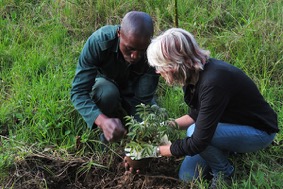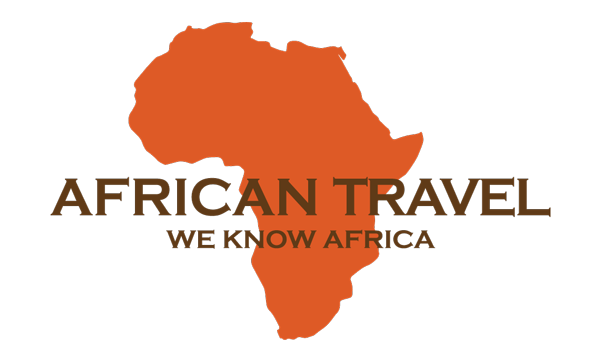WE KNOW AFRICA
Welcome to the African Travel safari blog. In this space, we share inspirational stories and ideas on adventures in Africa, plus our latest social posts!
Earth Day 2018
The Travel Corporation and TreadRight Foundation Celebrate Wildlife Initiative for Earth Day 2018
The TreadRight Foundation, created as a joint initiative between The Travel Corporation’s (TTC) family of brands, recognizes Earth Day 2018 by celebrating the TreadRight Wildlife Initiative.

As a travel organization, the TTC family of brands appreciate just how spectacular this planet is every day, taking great pride in creating experiences of a lifetime across the globe. Exploring the world and gaining a deeper understanding of each destination helps forge lasting connections to the history, culture and natural elements that makes each special.
Destinations across the planet are often defined by their iconic wildlife and many local populations are dependent on a robust ecosystem to make a living. However, wildlife crimes like poaching and animal exploitation threaten to harm these innocent creatures and even wipe entire species off the face of the planet. Earth Day 2018 provides TTC and TreadRight the opportunity to celebrate the incredible work of those leading the charge to defend animals in vulnerable situations, such as big cats, elephants, and rhinos.
As TreadRight celebrates Earth Day 2018, those travelling with the TTC family of brands can also rest assured that they are helping to make a positive difference for our planet. Travelling with TTC’s family of brands this Earth Day will help to fund The TreadRight Foundation’s big cat conservation project, delivered in partnership with their Wildlife Initiative partners at the Wildlife Conservation Society.
“Through my years spent working across every environment imaginable, whether I’m telling the stories of people or wildlife, there remains one constant in any healthy ecosystem, no matter the habitat, from the oceans to deserts to rainforests; top predators are integral to robust and flourishing ecosystems,” says TreadRight Ambassador Céline Cousteau.
“We need to remember the importance of top predators. We have put these vital animals at risk. It is our responsibility to save them. We have to remember the essentials of a human-nature co-existence. We need to tap back into the idea of balance and recognize that in a multitude of integral ecosystems around the globe, the survival of big cats is central to a healthy ecosystem.”
To learn more about The TreadRight Foundation and the work it does to ensure the environments and communities we visit remain vibrant for generations to come through the more than 50-plus sustainable tourism projects it helps to support worldwide, please visit treadright.org.
International Women's Day 2018
Lucille Sive: Empowering Women on International Women’s Day
“The story of women’s struggle for equality belongs to no single feminist nor to any one organization but to the collective efforts of all who care about human rights.”
– Gloria Steinem
Now, more than ever, issues facing women are gaining momentum worldwide. With the #MeToo and #TimesUp movements spurring activism in the US, #PressForProgress – the call for gender parity championed by International Women’s Day 2018 (March 8) – couldn’t come at a better time.
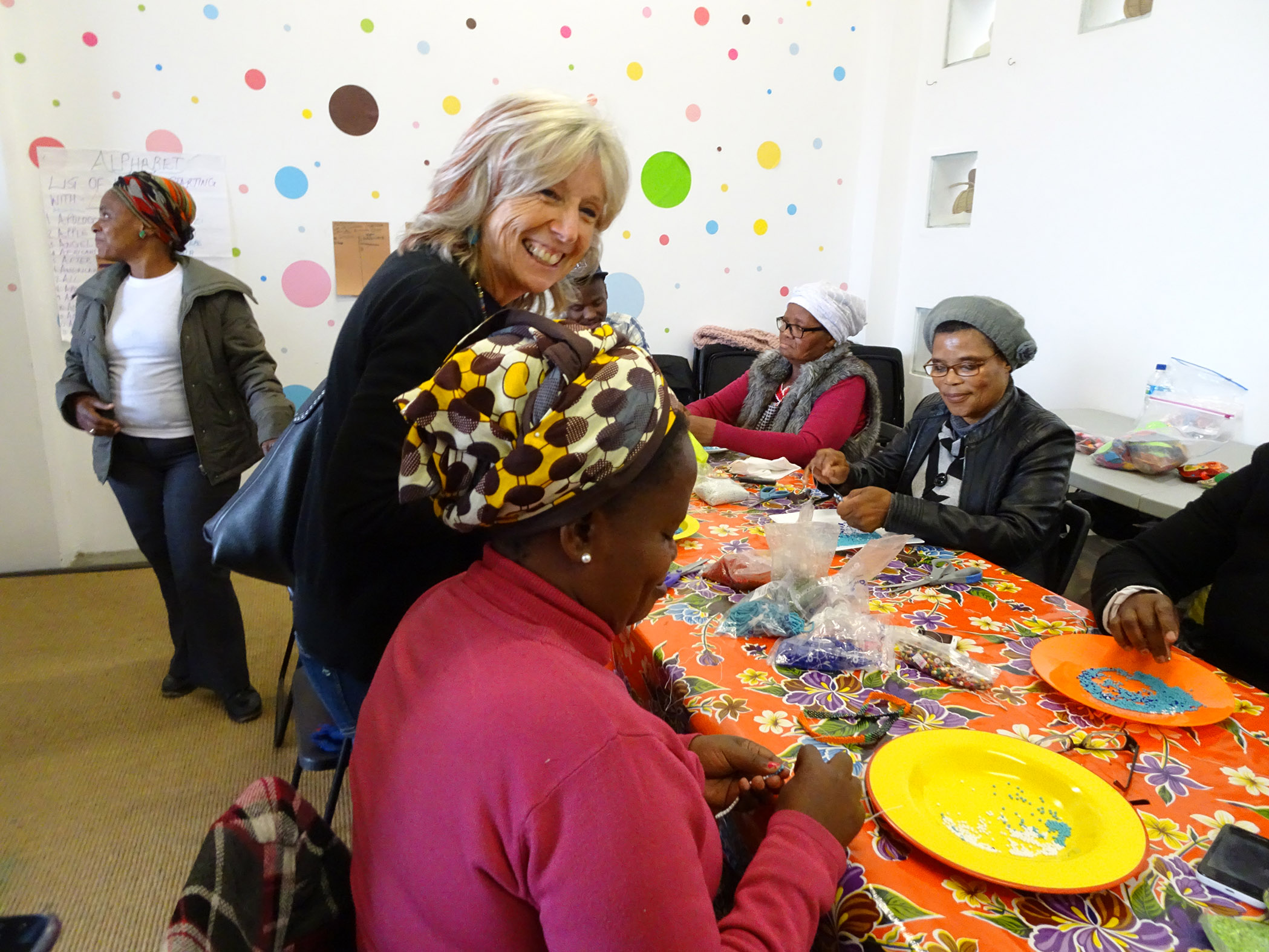
On this #IWD2018, we highlight the efforts of Lucille Sive, CEO of The Travel Corporation’s (TTC) Africa Division, who wholeheartedly endorses gender parity. As one of the first women in the travel industry to break the proverbial “glass ceiling,” Lucille proudly promotes gender parity in her home country, South Africa, by supporting sustainable economic growth for disadvantaged women.
Lucille has spearheaded many sustainable and responsible travel initiatives in Africa, and these are what she is most proud of and holds closest to her heart. Uthando, a unique non-profit organization which raises funds for life-changing community development programs in Cape Town, was personally selected by Lucille to partner with African Travel, Inc. Lucille and African Travel are deeply involved with Uthando projects that help women in the Khayelitsha township gain skills and earn income.
The eKhaya eKasi “Home in the Hood” Art and Education Centre is the setting for two of these projects. A vibrant community resource, eKhaya eKasi offers after-school programs in literacy and performing arts for children, and assists unemployed adults with job skills and entrepreneurship training. Beading and weaving are among the skills women learn here, and the artisanal gifts they make and sell allow them to support their families while improving the health of their local community.
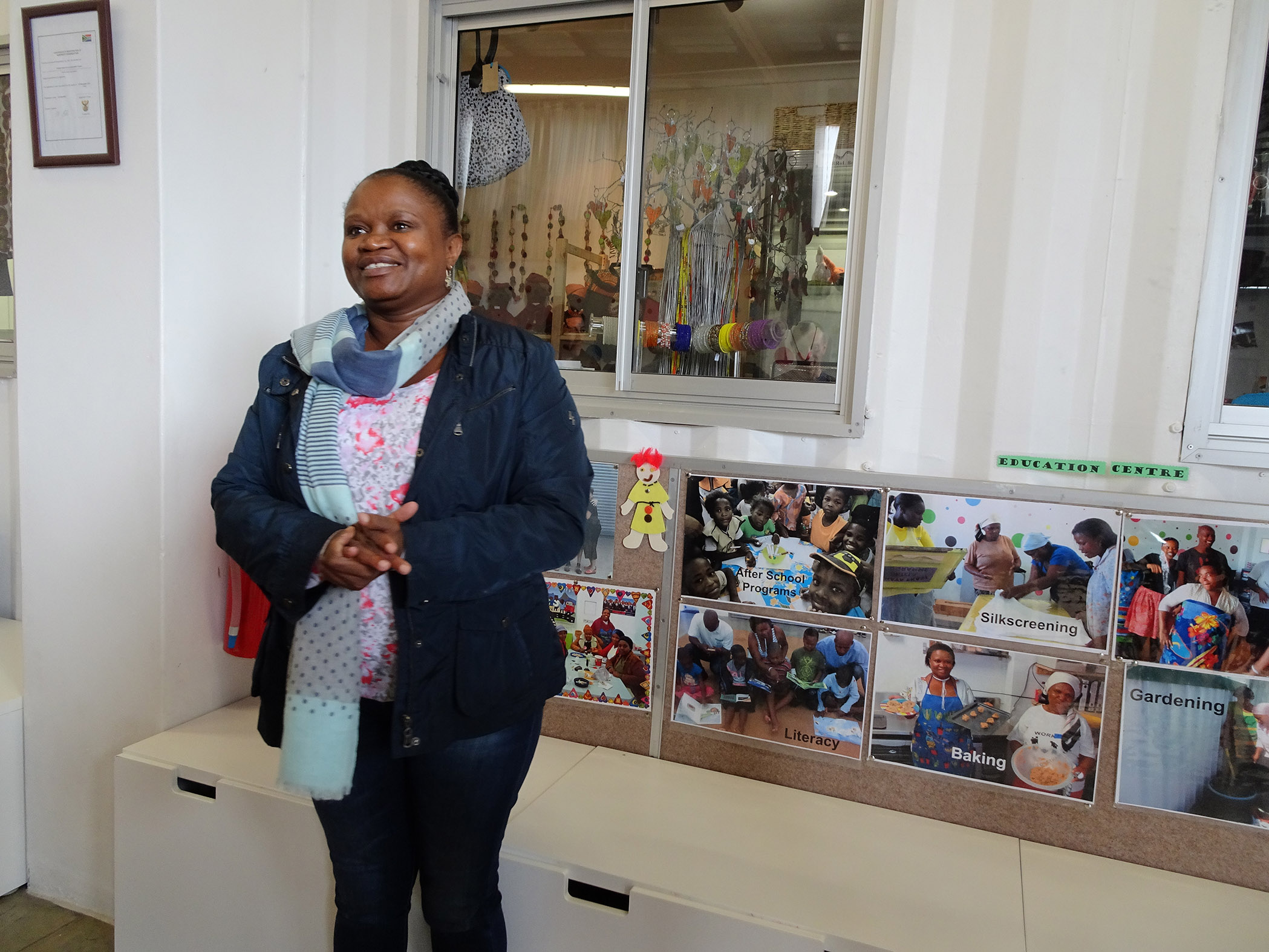
“The women of Africa are so resilient and resourceful,” says Lucille. “I am so proud that we’re able to partner with Uthando on these amazing projects that help foster independence and empowerment in women who are making a difference in their communities. It is truly inspirational.”
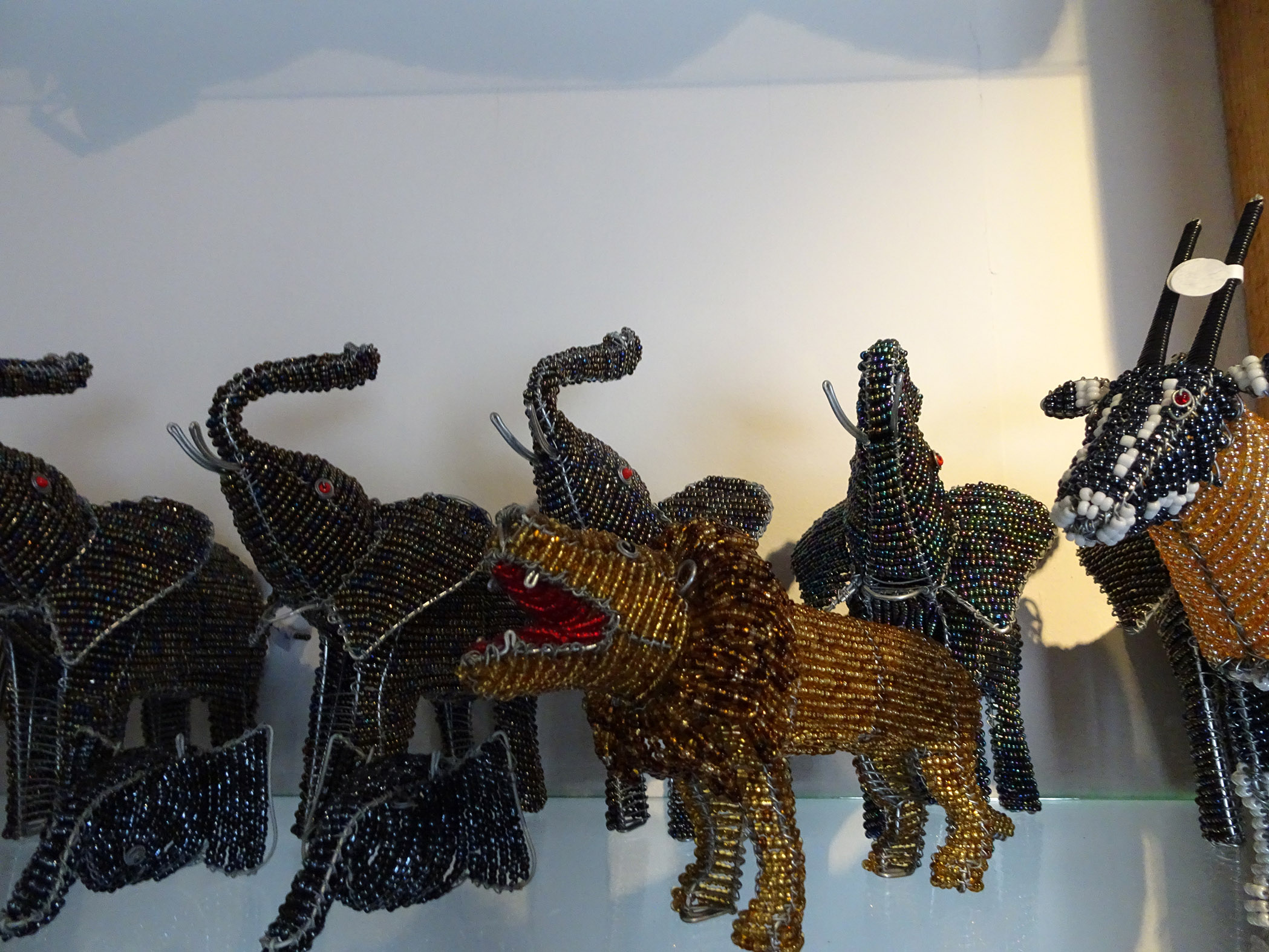
Guests on various African Travel itineraries receive beaded rhinos made by the women of eKhaya eKasi as gifts, and starting in summer 2018 African Travel also plans to give blankets made by these women to local orphanages and underprivileged children.
We know that gender parity won’t happen overnight, but through progressive and supportive efforts made by women collectively, we can stay motivated and make positive gains day by day.
3 Inspiring Sustainability Initiatives in East Africa
3 Inspiring Sustainability Initiatives in East Africa
Visiting Africa is always a thrill: there’s the majestic wildlife safaris, exceptional accommodations, and, of course, the five-star service you receive from some of the friendliest people in the world. My most recent trip to Tanzania and Rwanda featured all of these aspects in abundance. From my luxury safari in Tanzania to my time trekking with the gorillas in Rwanda, I came home with unforgettable memories. Equally important to me is how Africa is embracing sustainability and social responsibility to build a better future. Here are three projects in East Africa that are taking sustainability and social responsibility seriously.
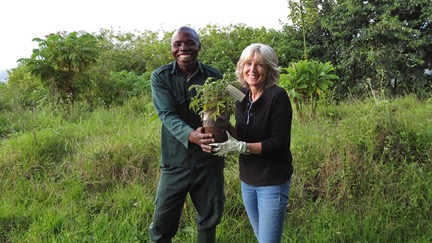
1) Shanga | Arusha, Tanzania
During our stay at the Arusha Coffee Lodge, I visited an incredible souvenir shop called Shanga. “Shanga” is the Swahili word for bead and refers to how this business began. In 2007, local resident Saskia Rechsteiner produced some necklaces for a Christmas fair. The necklaces were made from fabric and glass beads and they sold out within hours. Saskia then started receiving orders from safari companies, gift shops and travellers who wanted to import her beautiful creations back home. This sudden demand inspired her to grow her business, but not in the typical way. Saskia reached out to women and men in the community with disabilities to help her meet the demand. The result has been a growing business that now directly supports the employment of 70 women and men with disabilities who produce beautiful artisan gifts using recycled glass and sustainable materials.
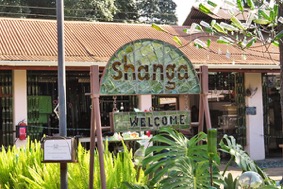
When I visited, I had the opportunity to see the people of Shanga produce their wares in the workshop. The impressive array of sustainable products includes weaving, glass blowing, beading, papermaking and metal work. I was impressed by the skills of Shanga’s artisans, many with disabilities, who were creating such stunning pieces. At the entrance of Shanga, there’s a wall painted with a quote that encapsulates this shop’s philosophy: “Kindness is a language which blind people see and deaf people hear.” I encourage all African Travel guests who stay at Arusha Coffee Lodge to visit this shop: with the purchase of stunning artisan jewellery and crafts, you will directly support the local communities in Arusha.
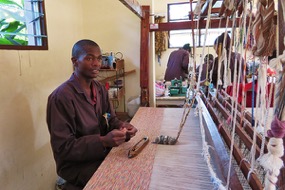
2) Nyaruswiga Safari Lodge | Serengeti, Tanzania
Situated in the heart of Serengeti National Park, One Nature’s Nyaruswiga Safari Lodge is a an ultra luxury tented camp, perfect for travelers who crave absolute comfort combined with unforgettable wildlife safaris. Nyaruswiga not only features first-class accommodations and a wonderful spa where you can relax and rejuvenate with a variety of wellness treatments, but a portion of your booking contributes to One Nature’s impressive conservation and sustainability projects. All One Nature camps, including Nyaruswiga, minimize their carbon footprint by using solar energy to power their camps’ operations. The purpose is to conserve the Serengeti’s resources so that travelers to the region can continue to enjoy its rich wildlife experience.
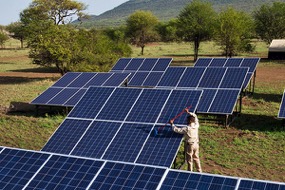
One Nature also supports anti-poaching initiatives in the region: they have partnered with Tanzania National Parks (TANAPA) to support the Serengeti de-snaring program. This initiative recruits locals, many who are ex-poachers, from villages in the Serengeti to use their skills and experience to locate and destroy snare traps throughout the Serengeti. The snares are a major problem for local wildlife and this program is making a real impact thanks to guests choosing to travel responsibly in Tanzania.
3) Bisate Lodge | Rwanda
Bisate Lodge, a new luxury lodge that opened in 2017, is committed to sustainable conservation and community development in Rwanda. The first thing I noticed when I arrived at the lodge is just how small of a footprint it makes. Bisate features just six luxury rooms, which they call forest villas. These villas are proudly made out of recycled materials, including glass and wood that you notice as soon as you enter your room. The look of the villas is also striking; they are pod shaped and the rooms sit on stilts high above the forest floor. These features only enhance the luxury feeling of Bisate: the rooms are spacious and feature large balconies that overlook the forest that surrounds the lodge.
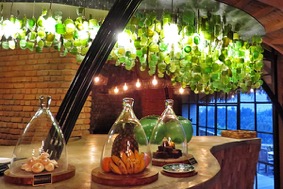
Bisate embraces a philosophy called “every guest a philanthropist”. During the construction of the lodge, Wilderness Safaris, the owners of Bisate Lodge, embarked on a project to plant more than 15,000 indigenous trees across the site on which Bisate is situated. Guests are encouraged to make their own small contribution to this ambitious project by planting a tree during their stay. Not only is this a fun activity, but I also learned more about the unique ecosystem and biodiversity of the area. The goal of the project is to restore rainforest habitats in the Volcanoes region as this will also help to expand the gorilla’s habitat. In total, Bisate wants to reforest 43 hectares of land with local vegetation including bamboo, hagenia and dombea trees. As more vegetation returns to the region, more wildlife will follow. I highly encourage guests to take part in tree planting at Bisate; the feeling of contributing to this ambitious conservation project is a joy.
They have also started a project to build a dam so that the local community will have easier access to water and not have to carry water so far.
